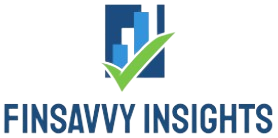In the dynamic Philippines, financial needs can arise unexpectedly. Whether it’s starting a business, renovating your home, or covering education expenses, having access to reliable financial resources is crucial. Here, we’ll delve into the realm of multi-purpose loans, a versatile lending option gaining traction in the Philippines. We’ll explore their key features, eligibility criteria, and potential uses, providing you with a comprehensive understanding of how these loans can help achieve your financial aspirations.
Definition and Overview of Multi-Purpose Loans
In the dynamic landscape of personal finance, multi-purpose loans have emerged as versatile financial instruments in the Philippines. These loans offer individuals the flexibility to address a wide array of personal needs and financial obligations. Unlike specific-purpose loans, such as home loans or auto loans, multi-purpose loans provide borrowers with the freedom to allocate funds according to their immediate requirements, be it for home improvements, medical emergencies, educational expenses, or debt consolidation.
One defining feature of multi-purpose loans is their unsecured nature. Unlike secured loans that require collateral, these loans do not necessitate borrowers to pledge assets, making them more accessible to a broader spectrum of the population. The absence of collateral expedites the application process, as borrowers are not burdened with the complexities associated with securing their assets against the loan.
Furthermore, multi-purpose loans typically involve fixed interest rates and structured repayment plans. Borrowers receive a lump sum amount, which they repay through installments over a predetermined period. This predictability in repayment terms allows borrowers to plan their finances effectively, providing a sense of stability amidst the fluctuations of personal expenses.
Types of Multi-Purpose Loans
Multi-purpose loans in the Philippines come in various forms, each tailored to specific financial needs. Understanding these types is crucial for borrowers seeking the most suitable option. Here’s a breakdown:
- Personal Loans: Among the most common multi-purpose loans, personal loans are offered by banks and financial institutions. Borrowers receive a lump sum amount, which can be utilized for any legitimate personal purpose. The repayment is structured into fixed monthly installments, and interest rates may vary based on the lender’s terms and the borrower’s creditworthiness.
- Salary Loans: Aimed at employees, salary loans allow individuals to borrow a percentage of their monthly income. These loans are often provided by employers or lending institutions affiliated with companies. The loan amount is deducted from the borrower’s salary over subsequent pay periods, ensuring a convenient and structured repayment process.
- Emergency Loans: Tailored for urgent financial needs, emergency loans are designed to provide quick access to funds. These loans typically have a faster approval process, allowing borrowers to address unforeseen expenses like medical bills or sudden repairs promptly. The repayment terms may be shorter, aligning with the immediate nature of the financial need.
- Government-Backed Loans: Government agencies like the Social Security System (SSS) and Pag-IBIG Fund in the Philippines offer multi-purpose loans to their members. These loans often come with favorable terms and lower interest rates, providing an additional avenue for individuals to meet their diverse financial requirements.
Understanding the distinctions among these types of multi-purpose loans empowers borrowers to choose an option that aligns with their specific needs and financial circumstances. Each type offers unique advantages, and the decision should be based on factors such as the purpose of the loan, repayment preferences, and eligibility criteria.
Financial Institutions Offering Multi-Purpose Loans
In the Philippines, a plethora of financial institutions caters to the diverse financial needs of individuals by providing multi-purpose loans. Understanding the sources of these loans is crucial for borrowers seeking reliable and reputable options. Here are some key entities that offer multi-purpose loans:
- Banks: Major banks in the Philippines play a significant role in providing multi-purpose loans. These loans are often part of the banks’ consumer lending portfolios, offering competitive interest rates and flexible repayment terms. Borrowers can approach local and international banks to explore personal loan options tailored to their financial requirements.
- Government Agencies: Government-backed financial institutions, such as the Social Security System (SSS) and Pag-IBIG Fund, extend multi-purpose loans to their members. These loans are designed to support the financial needs of individuals and come with certain benefits, including lower interest rates and more lenient eligibility criteria. Members can inquire about these loans directly through the respective government agencies.
- Cooperative Banks: Cooperative banks, often community-based, are another source of multi-purpose loans. These institutions operate on a cooperative model, emphasizing community support and financial inclusion. Cooperative banks may offer loans with reasonable terms and a focus on serving the local community.
- Online Lenders and Fintech Companies: With the rise of digital financial services, online lenders and fintech companies have entered the landscape, providing a convenient alternative for obtaining multi-purpose loans. These platforms often streamline the application process, offering quick approvals and disbursements. However, borrowers should exercise caution and ensure the legitimacy of these online lenders before engaging in any transactions.
Understanding the diverse landscape of financial institutions offering multi-purpose loans allows borrowers to make informed choices based on their preferences, eligibility, and the terms offered by different entities. It is advisable for borrowers to explore options, compare interest rates, and assess the reputation of the lender before committing to a multi-purpose loan.
Application Process and Eligibility Criteria for Multi-Purpose Loans in the Philippines
To initiate the application process for a multi-purpose loan, individuals typically need to submit a set of required documents. These may include proof of identity, proof of income, and other supporting documentation, depending on the lender’s specific requirements. Ensuring all necessary paperwork is in order is crucial for a smooth application process.
Eligibility Criteria
Lenders impose specific eligibility criteria to assess an individual’s suitability for a multi-purpose loan. These criteria often include a minimum age requirement, a stable source of income, and a satisfactory credit history. Meeting these criteria is essential for loan approval, and prospective borrowers should carefully review and understand the lender’s eligibility requirements before applying.
Completing the requisite application forms is a fundamental step in securing a multi-purpose loan. These forms capture essential information about the borrower, including personal details, financial information, and the purpose of the loan. The accuracy and completeness of these forms contribute significantly to the efficiency of the loan approval process.
Submission Process
Whether applying online or in person, the submission process is a critical phase of securing a multi-purpose loan. Online submissions often involve uploading digital copies of required documents, while in-person applications may require a visit to the lender’s physical branch. Understanding the submission process and adhering to guidelines ensures that the application is received and processed promptly.
Once the application is submitted, the lender evaluates the provided information, creditworthiness, and compliance with eligibility criteria. Upon approval, the borrower receives the agreed-upon loan amount. The disbursement process may involve the funds being transferred to the borrower’s bank account or, in the case of salary loans, deducted directly from the salary. Borrowers should be aware of the expected timelines for approval and disbursement to plan their finances accordingly.
Benefits and Risks of Multi-Purpose Loans
Multi-purpose loans offer significant advantages, but they also come with inherent risks. Understanding these aspects is crucial for borrowers to make informed financial decisions.
| Benefits | Risks | Considerations |
| Flexibility: Multi-purpose loans provide flexibility in utilizing funds for various personal needs. | High-Interest Rates: Some lenders may charge high-interest rates, increasing the overall cost of borrowing. | Compare interest rates from different lenders. |
| Convenience: The application process is generally straightforward, and funds can be disbursed quickly. | Debt Accumulation: Improper financial management can lead to debt accumulation, affecting the borrower’s financial health. | Plan for responsible financial management and budgeting. |
| Unsecured Nature: No collateral is required, making these loans accessible to a broader segment of the population. | Credit Score Impact: Failure to repay the loan on time can negatively impact the borrower’s credit score. | Prioritize timely repayments to maintain a positive credit history. |
Additional Insights:
- Flexibility and Convenience: Multi-purpose loans provide borrowers with the flexibility to address various financial needs, from urgent medical expenses to planned home improvements. The convenience of a streamlined application process and quick disbursement of funds makes them a viable solution for those requiring immediate financial assistance.
- Unsecured Nature: The absence of collateral in multi-purpose loans eliminates the need for borrowers to risk their assets. This unsecured nature enhances accessibility, allowing a more extensive range of individuals to avail themselves of these loans.
- High-Interest Rates: One significant risk associated with multi-purpose loans is the potential for high-interest rates. Borrowers must carefully review and compare interest rates from different lenders to ensure they secure the most favorable terms and avoid unnecessary financial strain.
- Debt Accumulation: While multi-purpose loans offer financial flexibility, borrowers must exercise responsible financial management. Using the loan amount judiciously and planning for timely repayments is crucial to prevent debt accumulation and associated financial challenges.
- Credit Score Impact: Timely repayment is essential for maintaining a positive credit history. Failure to adhere to the repayment schedule can negatively impact the borrower’s credit score, potentially limiting future borrowing opportunities and affecting overall financial well-being.
In conclusion, while multi-purpose loans provide a valuable financial lifeline, borrowers should approach them with a clear understanding of the associated benefits and risks. Responsible financial planning, thorough research, and adherence to repayment commitments are key to maximizing the benefits of these loans while mitigating potential risks.

